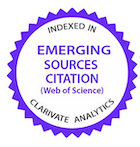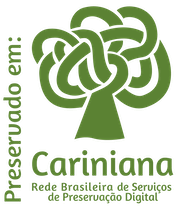Suplementação de vitamina C na dieta para larvas de jundiá Rhamdia voulezi
DOI:
https://doi.org/10.5216/cab.v12i1.10560Palavras-chave:
espécie nativa, nutrição, vitamina CResumo
Objetivou-se com o presente estudo avaliar a suplementação de vitamina C na dieta para o desenvolvimento e sobrevivência de larvas de jundiá Rhamdia voulezi. Foram distribuídas, em um delineamento inteiramente casualizado, 375 larvas, em 25 aquários de 30 L de volume útil, na densidade de 0,5 larva/litro. As rações foram formuladas de forma a se apresentarem isoproteicas, isoenergéticas, isoaminoacídicas e isofibrosas, sendo suplementadas com 600 (controle); 850; 1.100; 1.600 e 2.600 mg de vitamina C por kg de ração. As larvas foram alimentadas até a saciedade aparente por um período de 31 dias, quatro vezes ao dia (8h, 11h, 14h e 17h). Mensurou-se a temperatura da água diariamente, enquanto os parâmetros físico-químicos (oxigênio dissolvido, pH e condutividade) foram mensurados semanalmente. Não observaram-se diferenças significativas no desempenho das larvas em relação ao peso médio final, comprimento médio final, fator de condição, taxa de crescimento específico e sobrevivência. Conclui-se que o desempenho e a sobrevivência de larvas de jundiá Rhamdia voulezi não são influenciados pela suplementação em níveis superiores a 600 mg de vitamina C por kilograma de dieta.PALAVRAS-CHAVES: Espécie nativa, nutrição, vitamina C.
?
Downloads
Não há dados estatísticos.
Publicado
2011-03-31
Como Citar
REIS, Elenice Souza; FEIDEN, Aldi; SIGNOR, Altevir; ZAMINHAN, Micheli; FINKLER, Joana Karin; BOSCOLO, Wilson Rogério. Suplementação de vitamina C na dieta para larvas de jundiá Rhamdia voulezi. Ciência Animal Brasileira / Brazilian Animal Science, Goiânia, v. 12, n. 1, p. 83–89, 2011. DOI: 10.5216/cab.v12i1.10560. Disponível em: https://revistas.ufg.br/vet/article/view/10560. Acesso em: 11 fev. 2026.
Edição
Seção
Produção Animal
Licença
Copyright (c) 2011 Ciência Animal Brasileira / Brazilian Animal Science

Este trabalho está licenciado sob uma licença Creative Commons Attribution 4.0 International License.
Autores que publicam nesta revista concordam com os seguintes termos:
- Autores mantém os direitos autorais e concedem à revista o direito de primeira publicação, com o trabalho simultaneamente licenciado sob a Licença Creative Commons Attribution que permite o compartilhamento do trabalho com reconhecimento da autoria e publicação inicial nesta revista.
- Autores têm autorização para assumir contratos adicionais separadamente, para distribuição não-exclusiva da versão do trabalho publicada nesta revista (ex.: publicar em repositório institucional ou como capítulo de livro), com reconhecimento de autoria e publicação inicial nesta revista.
- Autores têm permissão e são estimulados a publicar e distribuir seu trabalho online (ex.: em repositórios institucionais ou na sua página pessoal) a qualquer ponto antes ou durante o processo editorial, já que isso pode gerar alterações produtivas, bem como aumentar o impacto e a citação do trabalho publicado (Veja O Efeito do Acesso Livre).






























